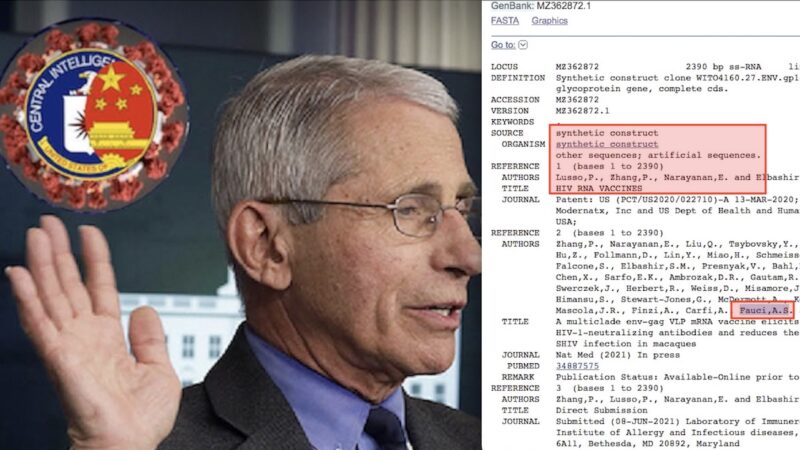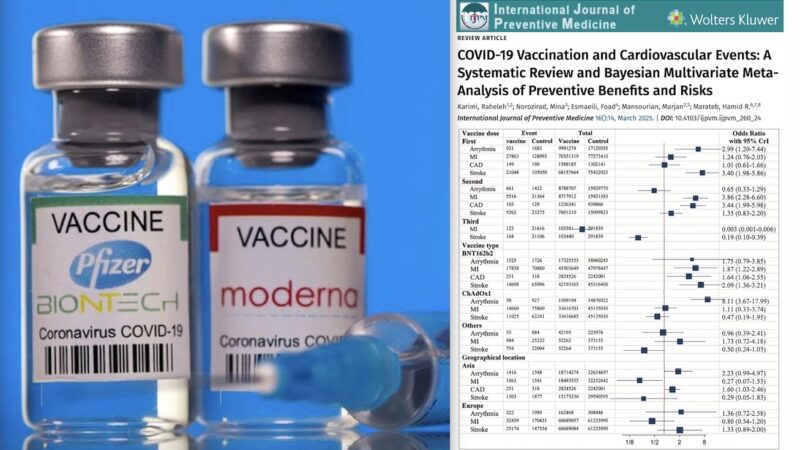Tattoos Associated with Increased Risk of Lymphoma. Disturbing Swedish Study supports Bible Warning
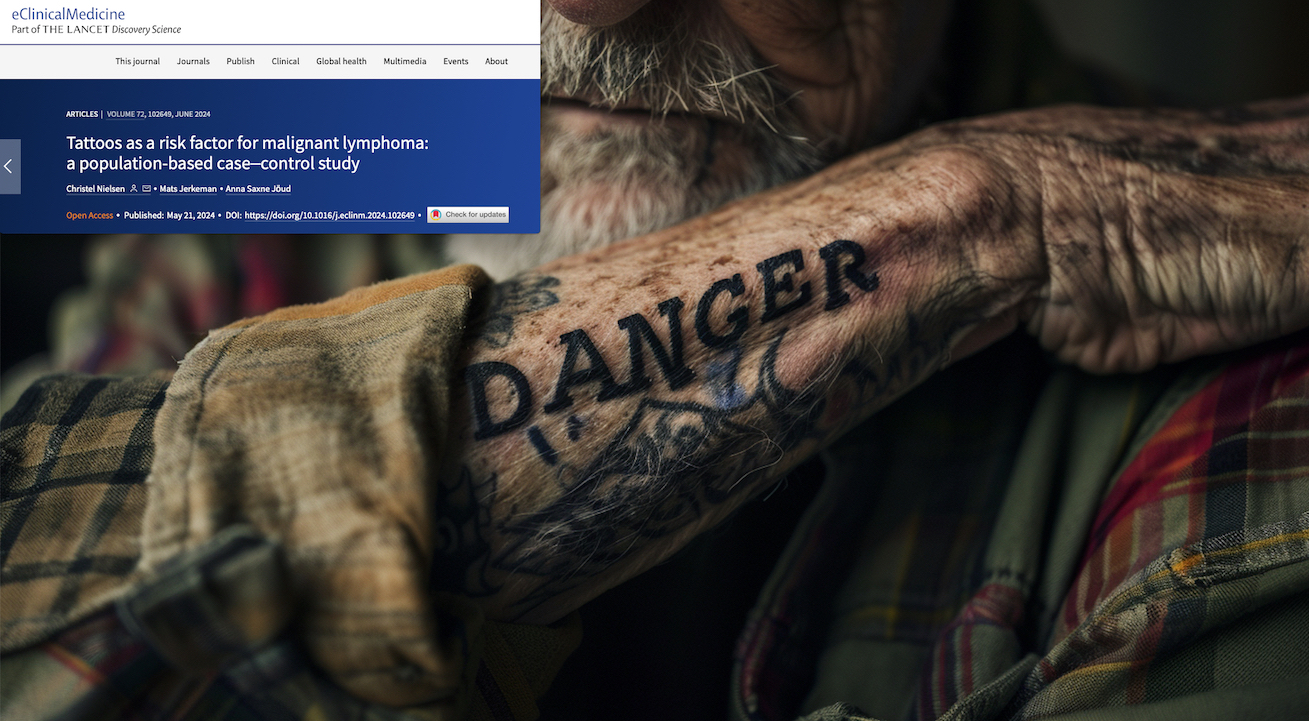
“‘Do not cut your bodies for the dead or put tattoo marks on yourselves. I am the Lord”Holy Bible
– Leviticus 19.28
by Fabio Giuseppe Carlo Carisio
In light of new research funded by the Swedish Research Council for Health, Working Life and Welfare, the Bible’s warning also makes sense in the field of human health…
«Our results suggest that tattooed individuals have an increased risk of lymphoma which underscores the need for continued research into the long-term health effects of tattoos. Causality cannot be conferred from a single epidemiologic study and the results need to be confirmed by further research».
Tis is the conclusion of a disturbing study titled “Tattoos as a risk factor for malignant lymphoma: a population-based case–control study” and published on May, 21, 2024 by journal eClinical Medicine part of THE LANCET.
The research has been conducted in Sweden Lund University by Christel Nielsen, Division of Occupational and Environmental Medicine, Department of Laboratory, Mats Jerkeman, Department of Oncology, Skåne University Hospital, and Anna Saxne Jöud, Division of Orthopaedics, Department of Clinical Sciences Lund.
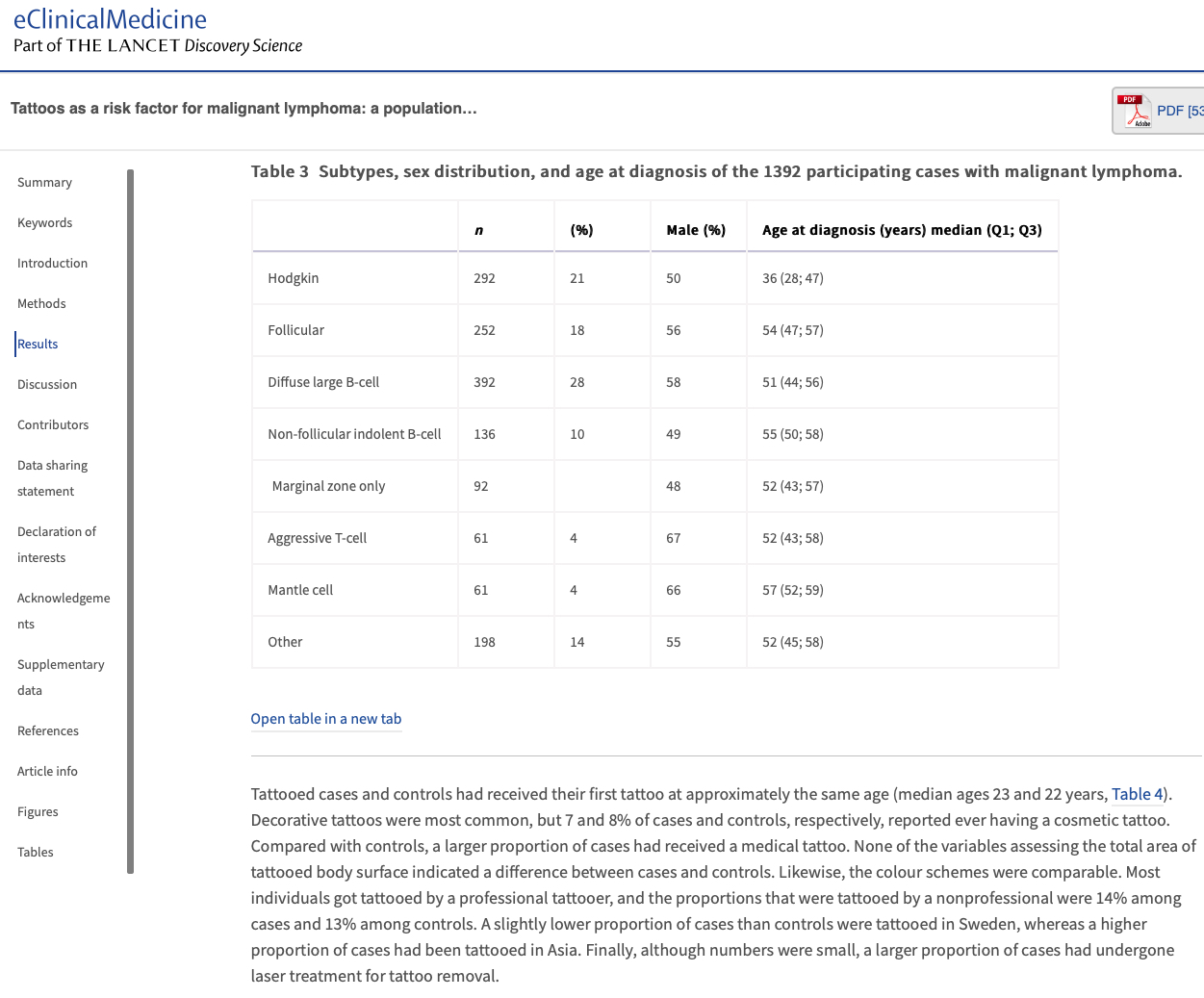
The relevance of this new paper has been accredited by a careful analysis by the famous American cardiologist Perter McCullough (article below).
«The popularity of tattoos has increased dramatically over the last few decades. Tattoo ink often contains carcinogenic chemicals, e.g., primary aromatic amines, polycyclic aromatic hydrocarbons, and metals. The tattooing process invokes an immunologic response that causes translocation of tattoo ink from the injection site. Deposition of tattoo pigment in lymph nodes has been confirmed but the long-term health effects remain unexplored. We used Swedish National Authority Registers with full population coverage to investigate the association between tattoo exposure and overall malignant lymphoma as well as lymphoma subtypes».
We can read in the summary of the study which in the conclusions pointed out the lack of specialistic researches and the high risk of a correlation…
«The results were suggestive of an increased risk of B-cell lymphomas, particularly diffuse large B-cell lymphoma and follicular lymphoma. In contrast, Warner et al. observed a tendency towards an increased risk of T-cell lymphoma, although the overall result of their study was null. However, neither of the studies was powered to investigate lymphoma subtypes, and the estimates were associated with wide confidence intervals».
«We could not fully rule out survivorship bias because of the low response rate among deceased cases’ next-of-kin. Hence, if tattoo exposure is associated with increased mortality in patients with lymphoma, we might have underestimated the true risk. However, 89% of the cases were still alive at the time of the survey and the tattoo prevalence reported by deceased cases’ next-of-kin was comparable to that of the participating cases. We therefore consider the risk of survivorship bias to be low».
Mass Mimesis of Green Ink May Not be Safe Long Term
Originally published by Peter A. McCullough, MD, MPH on his Substack Courageous Discourse
All links to Gospa News articles have been added aftermath, in relation to the topics highlighted
As summertime approaches, one cannot help but notice the every increasing appearance of visible tattoos, mainly in forest green ink. Unlike tie-dye shirts, bell-bottoms, new hairstyles and other fads, tattoos represent a permanent form of mass mimicry or mimesis. Most people with tattoos give less than a compelling reason for this life-long commitment.
The skin is loaded with lymphocytes and one can only wonder does the ink or one of its chemical components stimulate these cells to become cancerous. After multiple individual case reports of lymphoma in tattoo enthusiasts, Nielsen et al has published this disturbing report from Lund, Sweden.
“The study population consisted of 11,905 individuals, and the response rate was 54% among cases (n = 1398) and 47% among controls (n = 4193). The tattoo prevalence was 21% among cases and 18% among controls. Tattooed individuals had a higher adjusted risk of overall lymphoma (IRR = 1.21; 95% CI 0.99–1.48). The risk of lymphoma was highest in individuals with less than two years between their first tattoo and the index year (IRR = 1.81; 95% CI 1.03–3.20). The risk decreased with intermediate exposure duration (three to ten years) but increased again in individuals who received their first tattoo ≥11 years before the index year (IRR = 1.19; 95% CI 0.94–1.50). We found no evidence of increasing risk with a larger area of total tattooed body surface. The risk associated with tattoo exposure seemed to be highest for diffuse large B-cell lymphoma (IRR 1.30; 95% CI 0.99–1.71) and follicular lymphoma (IRR 1.29; 95% CI 0.92–1.82).”
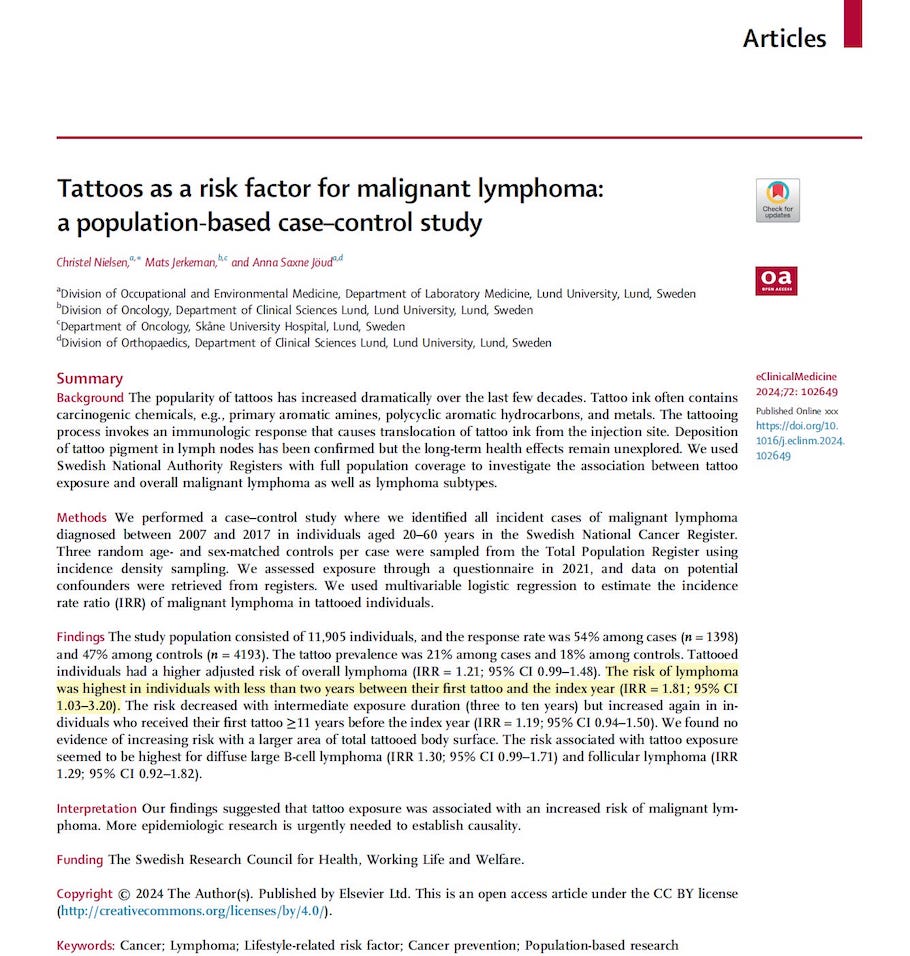
For those who made the potentially unwise choice of a tattoo, these data suggest active surveillance for new persistent rashes, fever, night sweats, recurrent viral illness, or swollen lymph nodes as signs of incipient lymphoma.
Originally published by Peter A. McCullough, MD, MPH on his Substack Courageous Discourse
All links to Gospa News articles have been added aftermath, in relation to the topics highlighted
MAIN SOURCES
GOSPA NEWS – WUHAN-GATES DOSSIER

